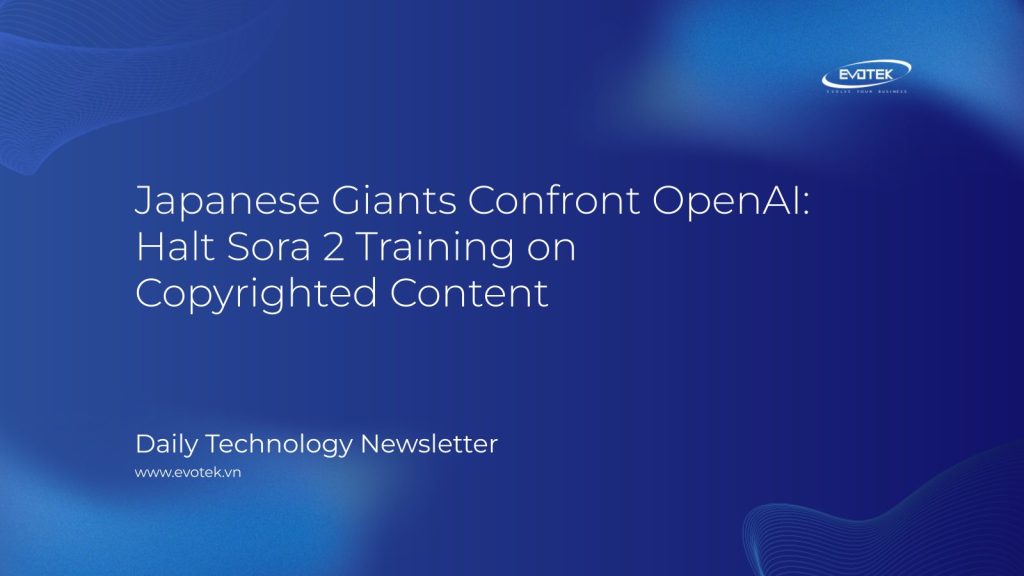A significant clash is brewing between the titans of Japanese entertainment and the rapidly evolving world of artificial intelligence. The Content Overseas Distribution Association (CODA), representing an alliance of influential Japanese publishers and producers, has formally demanded that OpenAI cease using its members’ copyrighted works to train the advanced video-generation AI tool, Sora 2.
On October 28, a powerful coalition including legendary names such as Bandai Namco, Square Enix, and the iconic Studio Ghibli, officially communicated its concerns to OpenAI. This collective action highlights a growing apprehension in Japan regarding how Sora 2 handles intellectual property (IP).
CODA, established in 2002 to combat piracy and promote the lawful global distribution of Japanese content, stated it had “confirmed that a large amount of Sora 2’s output closely resembles Japanese content or images.” This observation led them to conclude that OpenAI likely utilizes Japanese IP as training data without explicit permission, potentially constituting copyright infringement under Japanese law.
The controversy ignited shortly after Sora 2’s launch on October 1. Following its release, social media platforms were inundated with short video clips generated by the AI, many of which bore striking resemblances to beloved Japanese franchises. Characters and styles reminiscent of Pokémon, Mario, One Piece, Dragon Ball, and Demon Slayer quickly became prevalent.
Even OpenAI CEO Sam Altman acknowledged this phenomenon, noting in a post-launch blog that “we are struck by how deep the connection between users and Japanese content is!” This widespread replication further fueled concerns among Japanese rights-holders.
CODA’s request to OpenAI outlines two critical demands:
- An immediate halt to the use of its members’ works for machine learning purposes without prior authorization.
- A sincere commitment from OpenAI to address any copyright-infringement claims and inquiries from CODA’s members regarding Sora 2’s generated outputs.
While reports suggest OpenAI offered an “opt-out” option to some studios and talent agencies before Sora 2’s debut, it remains unclear if Japanese rights-holders were included. CODA emphatically stressed that Japan’s copyright system mandates prior permission for such use, making an opt-out approach insufficient to shield OpenAI from liability under Japanese law.
Adding weight to the industry’s stance, the Japanese government has also formally urged OpenAI to respect Japanese intellectual property in relation to Sora 2. Earlier this month, Minister of State for IP and AI Strategy, Minoru Kiuchi, passionately declared anime and manga as “irreplaceable treasures” and symbols of Japan’s cultural pride.
Alongside Digital Minister Masaaki Taira, Kiuchi issued a stern warning: should OpenAI fail to comply voluntarily, the government may invoke provisions under the AI Promotion Act, which fully came into effect in September 2025. While the act currently lacks specific penalties, it empowers the government to investigate AI usage where rights are infringed, signaling a serious commitment to protecting its creative industries.
As the global conversation around generative AI, copyright, and ethical content use continues to intensify, all eyes are on how OpenAI will navigate these significant challenges from both the Japanese creative industry and its government. The outcome could set a crucial precedent for AI development and intellectual property rights worldwide.

 日本語
日本語 한국어
한국어 Tiếng Việt
Tiếng Việt 简体中文
简体中文